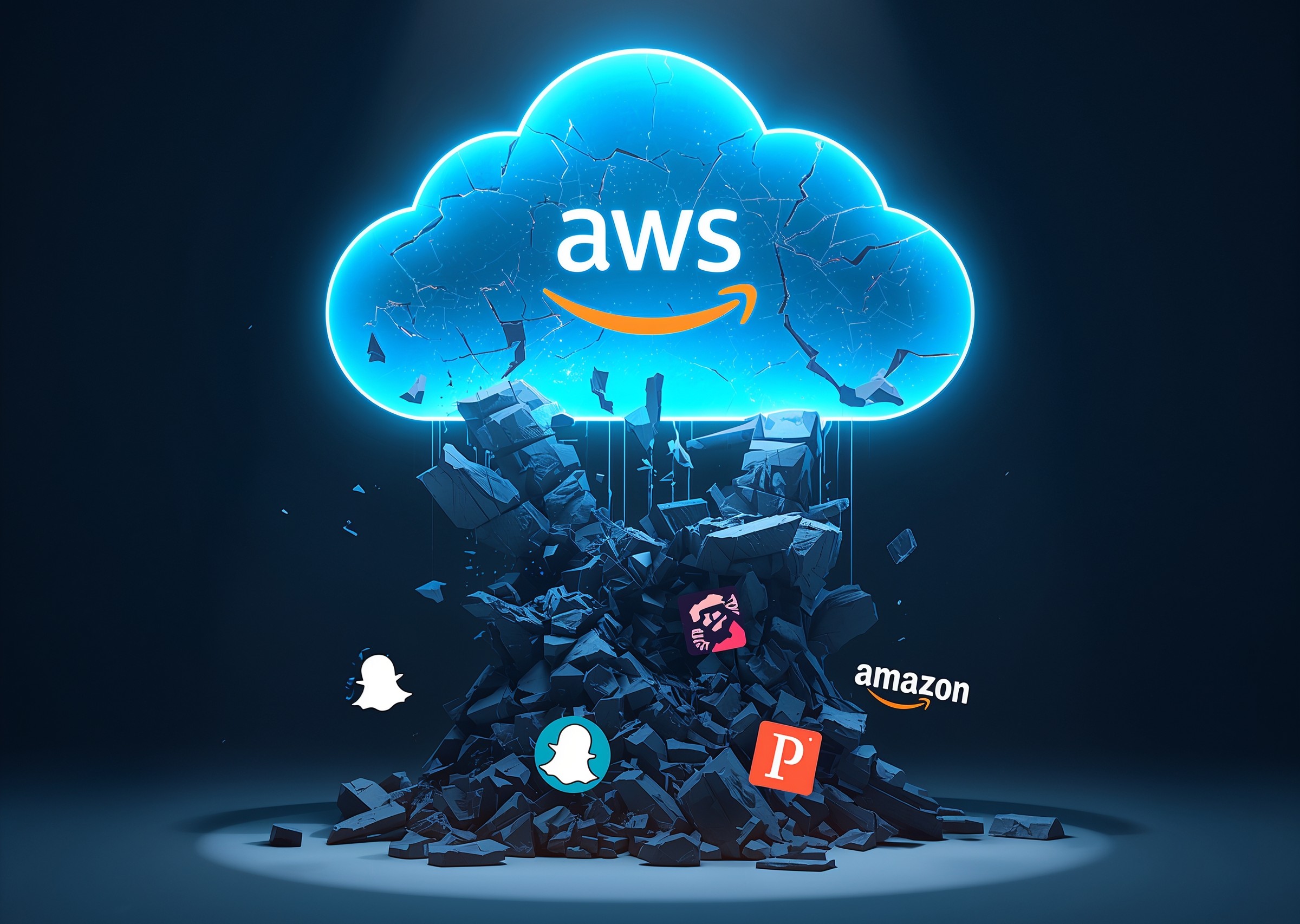On October 20, 2025, AWS experienced a large-scale service disruption centred on its US-EAST-1 region, causing dozens of widely-used applications and websites to fail or behave erratically.The outage affected everything from social-messaging and gaming platforms to e-commerce and smart-home systems.
At the heart of the issue was a breakdown in DNS resolution for the DynamoDB API endpoint, compounded by problems in AWS’s internal EC2 network and load-balancer health-monitoring subsystem. According to AWS status updates, the initial “increased error rates and latencies” began shortly after midnight in US-East (UTC).
Services & Regions Affected
The ripple-effect of the failure was global. A non-exhaustive list of impacted services and platforms includes:
-
Signal acknowledged degraded performance.
-
Snapchat widespread login and usage issues.
-
Fortnite servers and matchmaking impacted.
-
Amazon retail, Ring smart-home devices, and others relying on AWS infrastructure.
-
Banking and financial services: UK banks such as Lloyds Bank and its affiliates reported access issues.
-
Thousands of AWS services were affected by some estimates over 140 before full resolution.
DNS Resolution Failure
The first key failure occurred at the DNS layer for the DynamoDB service endpoint within US-EAST-1. When DNS translation fails, other services cannot locate and access critical APIs – even when the underlying data stores remain intact.
EC2 Network & Health-Monitor Subsystem Fault
Once the DNS issue triggered a chain reaction, AWS identified problems in its EC2 internal network and the health-monitoring system of its network load balancers. These faults prevented proper traffic routing and resulted in elevated error rates and latency across multiple zones.
Implications for Cloud Architecture
This multi-layered failure underlines a core lesson: even highly-redundant cloud environments can collapse when key subsystems fail simultaneously. As one expert noted: “Large parts of the economy and society become vulnerable when one domino falls.”
Business & Cybersecurity Impacts
Operational Disruption
Enterprises relying on AWS’s US-EAST-1 region experienced wide-ranging service outages. For many, this translated into customer support shutdowns, transactional failures, and revenue disruption. One insurer suggested potential losses “in the millions” for just a few hours offline.
Threat Actor Opportunities
While AWS affirmed there was no malicious attack, outages of this magnitude often trigger opportunistic phishing campaigns and social-engineering attempts. Users should treat unexpected system errors or urgent support requests with caution.
Resilience & Supply-Chain Risk
This incident highlights two major risk vectors for cybersecurity teams:
-
Over-reliance on a single cloud region or provider.
-
Hidden downstream dependencies even apps not visibly hosted in US-EAST-1 may rely on resources there.
Mitigation & Best Practices for IT Leaders
Implement Multi-Region Cloud Strategy
Ensure mission-critical workloads can fail over to alternate regions or providers. Test fail-soft mechanisms and clearly map which services live where.
Track Service Dependencies
Maintain an updated dependency map: which internal/external services rely on specific cloud regions or APIs. Ensure you know your “blast radius.”
Strengthen Incident Response Playbooks
Include cloud-provider outages in your incident-response scenarios. Ensure communications, monitoring, and user fallback flows are pre-defined.
Monitor DNS & Network Health
Don’t assume DNS and load-balancer systems are invisible. Include them in your monitoring stack—since failures here often cascade fastest.
Key Timelines
-
03:11 AM ET – AWS US-EAST-1 region begins reporting elevated error rates and latencies.
-
Around 2:24 AM PT – AWS identifies DNS resolution issue for DynamoDB.
-
By early afternoon (US time) – AWS declares full mitigation of root faults; backlog processing continues.
The October 2025 AWS outage is more than “just another cloud glitch.” It’s a sober reminder that even the largest cloud provider still presents a systemic risk when foundational services falter. For cybersecurity professionals and business leaders, the message is clear:
Design for failure. Test failure. Be ready when outages ripple through.
Your architecture should assume that any region no matter how mature can experience service-level failures. Build accordingly.











4 thoughts on “Massive AWS Outage Oct 2025: Snapchat, Fortnite & Amazon Hit”